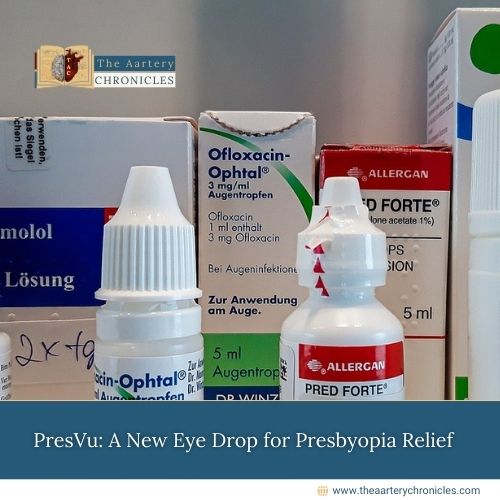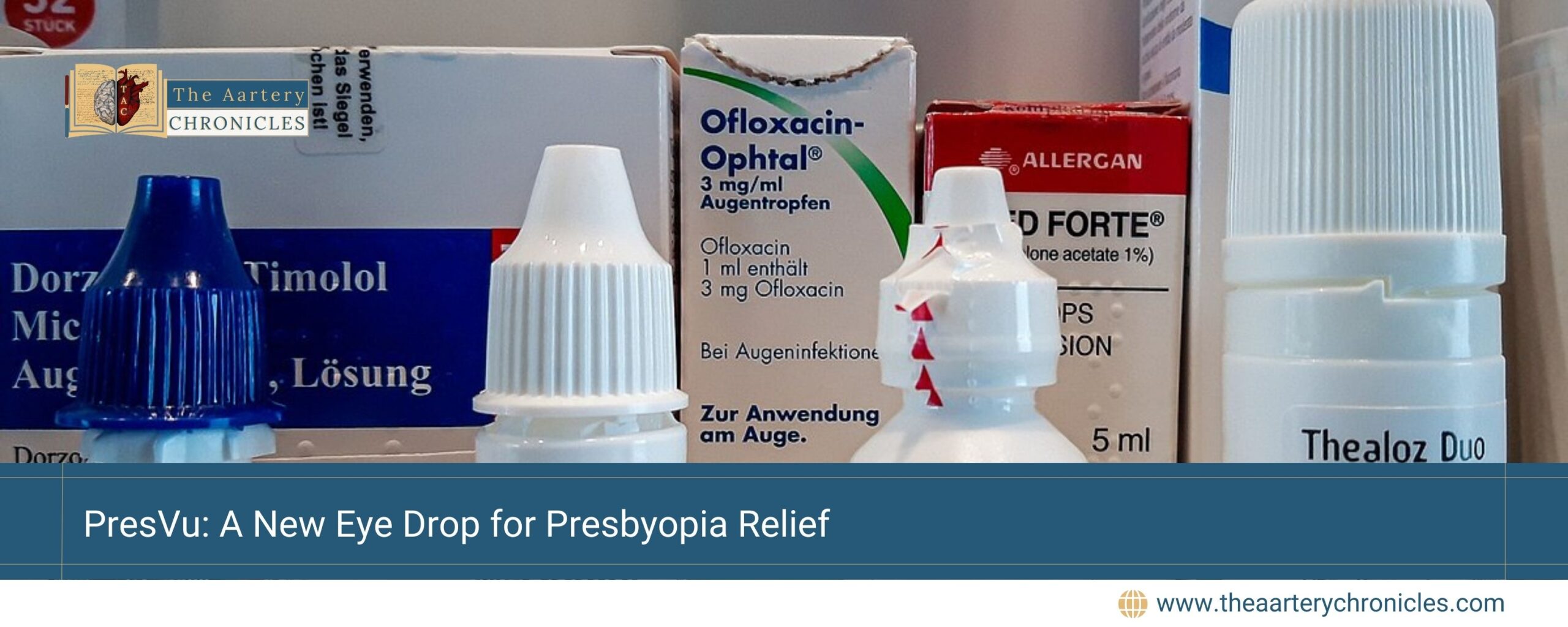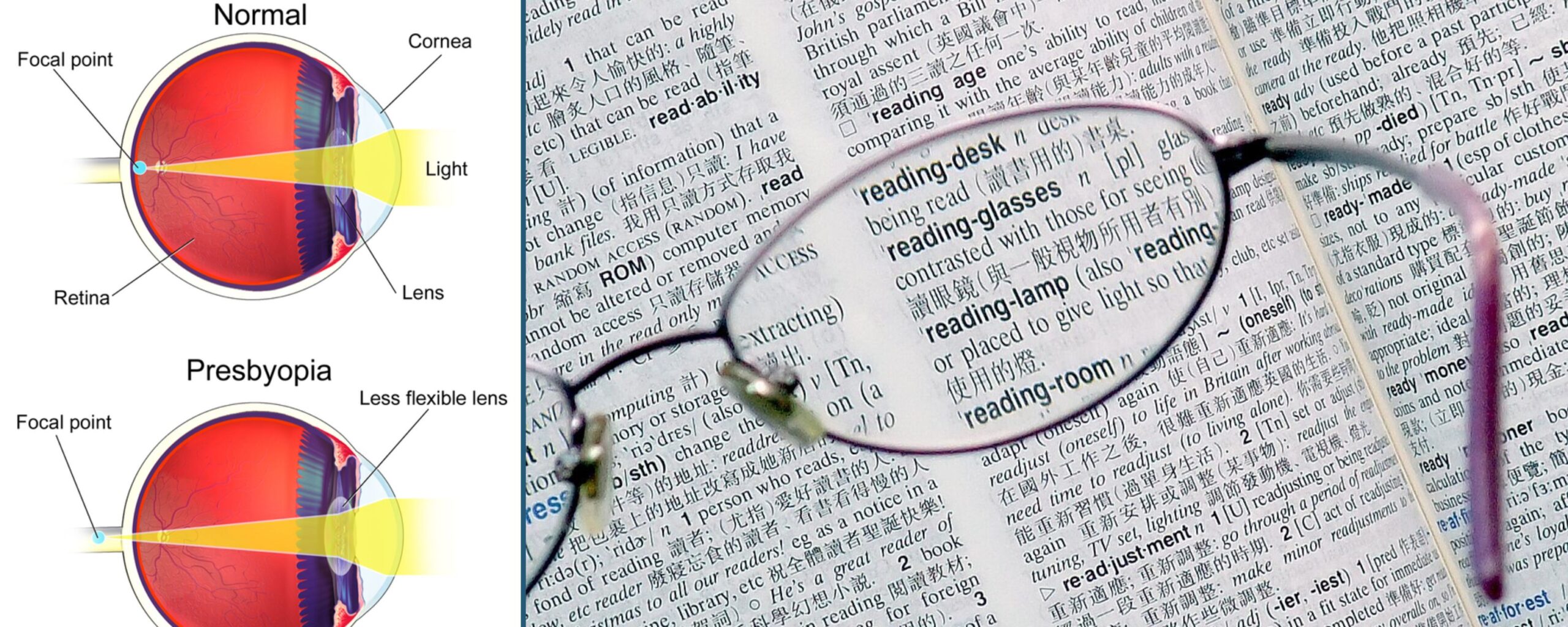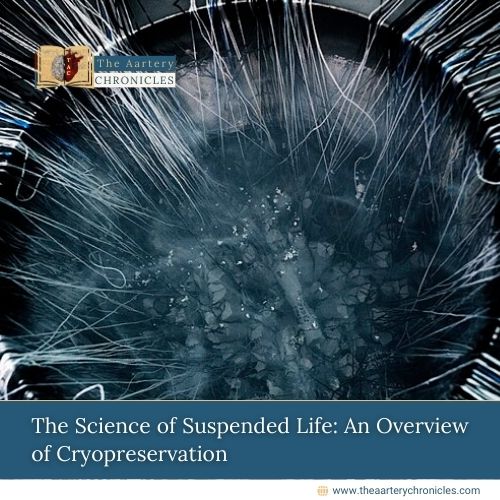

PresVu: A New Eye Drop for Presbyopia Relief
Overview
Central Drugs Standard Control Organisation’s (CDSCO), recently approved novel eye drops called PresVu, manufactured by Entod Pharmaceuticals.
Reportedly, these eyedrops help with presbyopia and can reduce the need for glasses while reading. According to the reports, the Drug Controller General of India (DCGI) also approved the eye drops after CDSCO SEC recommended it.
What is PresVu?
PresVu is a novel eye drop solution that helps people suffering from presbyopia a vision condition associated with age mainly affecting people who are over 40 years old.
The eye drops are believed to be priced at 350 rupees per bottle. According to the sources, the eye drops will be sold via prescriptions and available in the pharmacy stores in the coming month. Eye drops have undergone meticulous clinical testing along with phase 3 trials in India as well as the US.
PrseVu: Mechanism of action
- Stimulating the muscles of the iris: PresVu eye drops contain an active ingredient called pilocarpine, which contracts the iris muscles that are responsible for controlling the size of the pupil. The contraction helps modify the shape of the pupil which causes more light to enter the eyes resulting in enhanced focus.
- Improving the flexibility of the lens: PresVu aids in restoring the lens flexibility which helps the lens to change shapes with ease and focus on the objects that are near.
- Expanding the depth of field: PresVu drops help in contracting iris muscles due to which the depth of field can be expanded and the eyes can focus on wider ranges. This helps individuals to naturally adapt to diverse viewing ranges.
- pH adaptation: Because of the dynamic buffer technology PersVu can quickly adapt to the pH of tears ensuring feasibility for prolonged use.
Limitations, Side Effects, and Controversy Surrounding PresVu
- Experts have criticized PresVu saying it cannot be a permanent solution and may have side effects including driving during the night, retinal issues, and retinal detachment in rare cases.
- It is also being said that prolonged use may result in complications for surgeries in the future including cataracts and glaucoma.
- Experts caution about pilocarpine’s potential complications. It causes the pupil to constrict creating a pinhole effect, however long-term safety is highly uncertain.
- The solution is imperfect and temporary, providing temporary improvement and not addressing vision issues.
- Ophthalmologists state that the PresVu may reduce the glasses dependency, however, it will not replace them completely.
- When the impact of eye drops wears off, the glasses may need to be used.

What is presbyopia?
Presbyopia refers to a refractive defect that can lead to difficulties in seeing objects up close. It primarily affects middle-aged and older adults. The condition occurs when the lens fails to properly focus the light on the retina.
The condition is considered to be a part of the normal aging process affecting the majority of individuals as they age. Many individuals can have other refractive defects with presbyopia.
Symptoms of presbyopia
- Headache
- Strain on eyes
- Blurred vision at a normal distance
- Difficulty seeing objects up close
- The need to hold the reading materials far away in order to focus
Cause: The lens in the eyes loses flexibility with age and becomes harder, stopping to focus the light on the retina, which makes the objects nearby appear blurred.
Treatment
A few changes can help including:
- Using bright lights
- Using print books with large font sizes or increasing the font size on the computer
- Holding reading materials further away.
- The contact lenses or glasses prescribed by the doctor can help provide a vision as clear as possible.
- Eye drops
- Based on the individual’s condition doctor may suggest surgery.
Presbyopia Vs Farsightedness
Often Presbyopia can be confused with Farsightedness as both are refractive defects causing blurred vision for objects up close. However, they have distinct causes
- Presbyopia occurs because the lens loses flexibility with age
- Farsightedness happens when the cornea is flat or the eyeball is extremely short.
PresVu offers a promising solution for individuals with presbyopia (age-related difficulty in near vision), particularly those over 40. Derived from pilocarpine, a medication traditionally used for treating glaucoma, this innovative formulation provides a temporary alternative to reading glasses. It begins working within just 15 minutes and lasts for approximately 4-6 hours, offering a glasses-free window during that time. However, PresVu comes with potential side effects like nausea, headaches, eye strain, and in rare cases, retinal detachment. Additionally, it is not effective in elderly individuals with a near vision of above +2.50D. While PresVu is an exciting development, glasses remain the most reliable and consistent solution for presbyopia. Until more comprehensive studies and clinical data emerge, it is advisable to continue using glasses as the primary corrective method. It is highly advisable to consult your ophthalmologist before using PresVu.
Dr. Areez Khoja, MBBS, Delhi
Conclusion
The advancement of the PresVu eye drops offers significant potential in managing presbyopia. It provides a temporary alternative to glasses. As pointed out by experts, despite the drop’s benefits it fails to offer an ultimate solution, and the potential side effects with temporary effectiveness must also be considered. Moreover, it is important to prioritize eye health and see the eye doctor in case of any discomfort.
- Presbyopia | nei.nih.gov
- Presbyopia | Cleveland Clinic
- Various Media Sources

Sanika Pande
Reviewed by Dr. Areez Khoja, MBBS, Delhi








